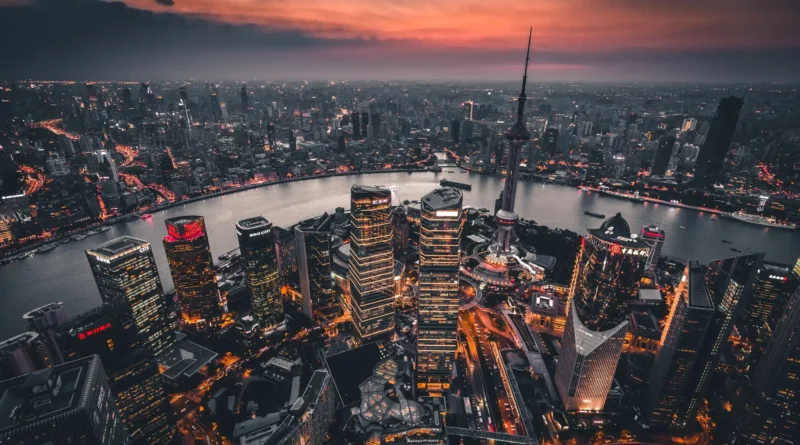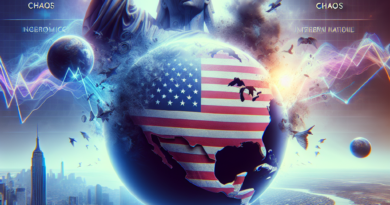Geopolitics scares the world in 2024. The reasons
In 2024, geopolitics will be the variable most feared by economics and finance.
This is stated by several analysts and expert surveys, highlighting how, since the war in Ukraine onwards, the world is rapidly changing and shaping new/old relationships between states that are often threatening.
The geopolitical factor, which influences alliances, wars, rivalries, power strategies based on borders, raw materials, commercial advantages, cultural and ethnic identities, demographic distribution has returned to the fore for at least a year, with the US-Europe axis against China and Russia to concretely embody this driving force of the world.
After the complex events of 2023, next year seems destined to be surrounded by growing uncertainties and tensions, in which geopolitics – and the consequent fragmentation of the world as suggested by ISPI analyzes – will dominate the economic and financial scene.
For this reason, 2024 risks establishing itself as a very restless and treacherous year.
read also Geopolitics of artificial intelligence: Nvidia's dominance, and Italy? Economy and markets fear geopolitics in 2024 Critical geopolitical factors will pose the biggest threat to the global economy and markets next year, according to a Natixis survey.
“The biggest macroeconomic risk for 2024 is that geopolitical actors can disrupt the global economy and markets with a single action,” the survey of 500 institutional investors from around the world found.
This factor ranks above threats related to declining consumer spending, central bank policy mistakes and the slowdown of the Chinese economy.
It is the latest in a series of warnings that global tensions are abnormally high.
The Hamas attacks on 7 October and Israel's retaliation have brought geopolitical risks back to the fore.
The war in Ukraine, meanwhile, is now in its second year and investors are keeping an eye on China's ambitions.
Markets are also on high alert ahead of several key elections, such as those in the United States, next year.
read also From Covid to Gaza: the "heart attacks" of globalization seen by Aldo Giannuli "After seeing how the first phases of the Russian invasion of Ukraine caused strong surges in energy and food prices in 2022, the institutions have good reasons to worry,” said a team at the Natixis Center for Investor Insight.
The geopolitical landscape appears less stable in 2024, is the grim prediction.
Further tensions risk damaging a global economy already struggling with high prices and financial burdens.
Research by Bloomberg Economics showed that the economic cost of conflict in Ukraine this year is likely to be the highest since the end of World War II.
A United Nations agency said global trade will decline in 2023 by about 5% in all of 2023.
Respondents to the Natixis survey cited China's geopolitical ambitions, as well as fragmentation among the BRICS group – Brazil, Russia, India , South Africa and China – and the West as serious causes for concern.
They are also fearful of the growing alliance between Russia, North Korea and Iran, which 70% say will lead to greater economic instability.
Will fragmentation shock the world? Geopolitical tensions will most likely translate into a major fragmentation of the world order in 2024: this is the mega-trend predicted by an analysis by ISPI (Institute for International Political Studies).
In the wake of what happened – even surprisingly – in 2023, it is not difficult to understand why experts have decided to summarize the expectations of 2024 with the word fragmentation.
The old year delivers to the new an insecure, divided world, full of insidious challenges, heated rivalries, profound inequalities and the search for a balance between powers that has so far been fragile or non-existent.
read also BRICS, who are the 6 new members from 1 January 2024 and what changes for the world To summarize, the big themes of 2024 that justify the fear of a fragmented world order include (according to ISPI): divisive wars like the Ukrainian one and the Israel-Hamas conflict; the global South versus West challenge; the US-China competition; the growth of global military spending; the fear of a Trump return to power; doubts about a strong and united EU; the brake on global growth; the risks of de-globalisation; the specter of European deindustrialization; the unknowns of the energy transition and the advance of Artificial Intelligence.
There is no need to add anything else to understand how much 2024 is awaited and feared.
And how real is the fear of the disintegrating force of geopolitics (guided, evidently, by poorly enlightened and far-sighted political minds in this specific historical context).




